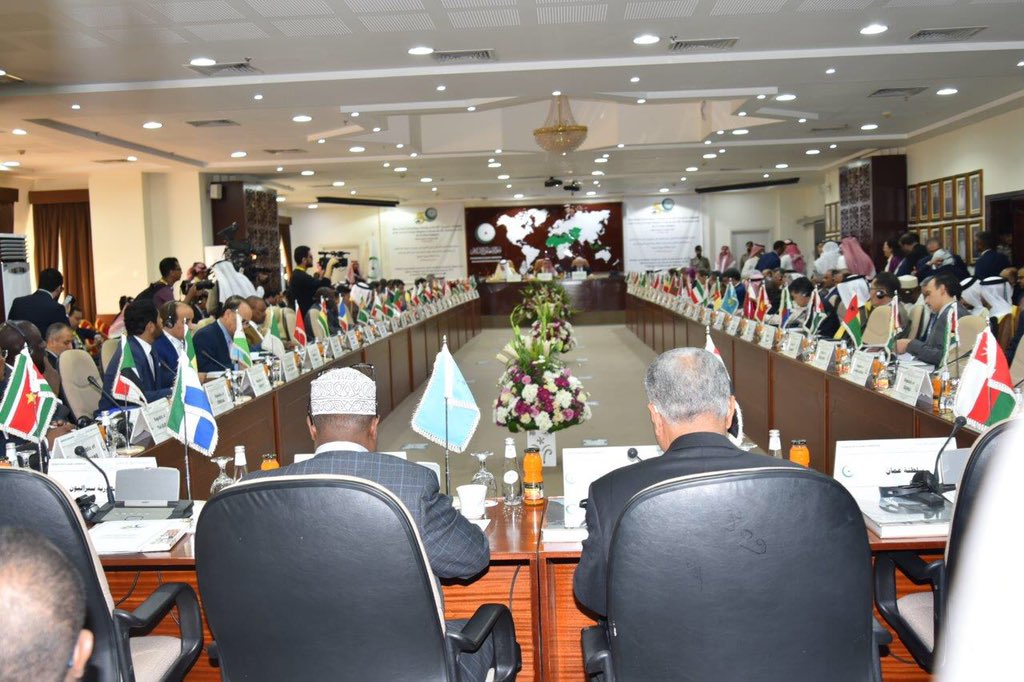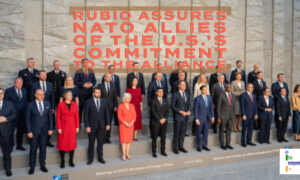
The Organisation of Islamic Cooperation (OIC) has rejected the Trump’s Middle East Plan as it does not meet the minimum rights and aspirations of Palestinian people
The Organisation of Islamic Cooperation (OIC) has today, i.e., Monday, February 3, 2020, rejected the Middle East Plan, as proposed by the President of United States (U.S.) – Donald Trump.
The decision was made during the OIC Summit in the city of Jeddah in Saudi Arabia. OIC is an international organization founded in 1969, consisting of 57 member states, with a collective population of over 1.8 billion as of 2015, with 53 countries being Muslim-majority countries. It is considered as a collective voice of the Muslim world and works to safeguard the interests of the Muslim world.
The Summit was held at the behest of Palestine after Arab League rejected the Trump’s Middle East Plan as it does not meet the minimum rights and aspirations of Palestinian people.
Speaking on the occasion, the Secretary-General of OIC – Yusuf bin Ahmed Al-Othaimeen said, “We renew our commitment to continuously engage in efforts aimed at achieving peace, security, stability, and justice, in accordance with international resolutions and the Arab peace initiative.”
Also known as Trump’s Peace Plan, the proposal is aimed at resolving the Israel-Palestine conflict. The plan was unveiled by Trump on January 28, 2020 in a Press Conference in White House, in the presence of Prime Minister of Israel – Benjamin Netanyahu.
Making the announcement, Trump tweeted, “I will always stand with the State of Israel and the Jewish people. I strongly support their safety and security and their right to live within their historical homeland. It’s time for peace!”
I will always stand with the State of Israel and the Jewish people. I strongly support their safety and security and their right to live within their historical homeland. It's time for peace! pic.twitter.com/lKwQ9IKTUG
— Donald J. Trump (@realDonaldTrump) January 28, 2020
Trump’s plan is divided into 2 parts – an economic portion and a political portion. On June 22, 2019, the Trump administration released the economic portion of the plan, titled “Peace to Prosperity”. The political portion was released in late January 2020.
Trump’s plan promotes the idea of establishment of a 2-State solution, promising Palestinians a State of their own with a new capital in Abu Dis, a suburb just outside Jerusalem. Meanwhile, Jerusalem would be the capital of Israel. But the problem is Palestinians want both occupied East Jerusalem and the West Bank to be part of a future State.
For the records, Israel and Palestine have been in conflict for decades over various political issues such as borders, refugees and the control of Jerusalem.
The British took over the control of Palestine after the Ottoman Empire was defeated in World War I. Palestine, at that time, was inhabited by Jewish minorities and Arab majority. The British had a task of establishing Palestine as a national home for Jews. But the Palestinian Arabs opposed the move and said that the land belongs to them.
In 1947, the United Nations (U.N.) voted for Palestine to be split into separate Jewish and Arab States, with Jerusalem becoming an international city. The plan was accepted by Jews but rejected by Arabs. Unable to solve the problem, the British left Palestine in 1948. This was followed by Jews declaring the creation of the State of Israel.
The Palestinians Arabs opposed this move and a war broke-out between the two communities. Meanwhile, neighbouring Arab countries invaded the region. Hundreds of thousands of Palestinians fled or were forced out of their homes in what they call Al Nakba, or the “Catastrophe.” When the war ended, Israel controlled most of the territory. Jordan occupied the land, which became known as West Bank, Egypt occupied Gaza.
Jerusalem was now divided between Israeli forces in the West and Jordanian forces in the East. In another war in 1967, Israel captured East Jerusalem, West Bank, most of the Syrian Golan Heights, Gaza and the Egyptian Sinai Peninsula.
Israel claims the whole of Jerusalem as its capital, while the Palestinians claim East Jerusalem as the capital of a future Palestinian state. Since 1967, Israel has built settlements in these areas, where more than 600,000 Jews live. Palestinians consider them as illegal immigrants under international law.







